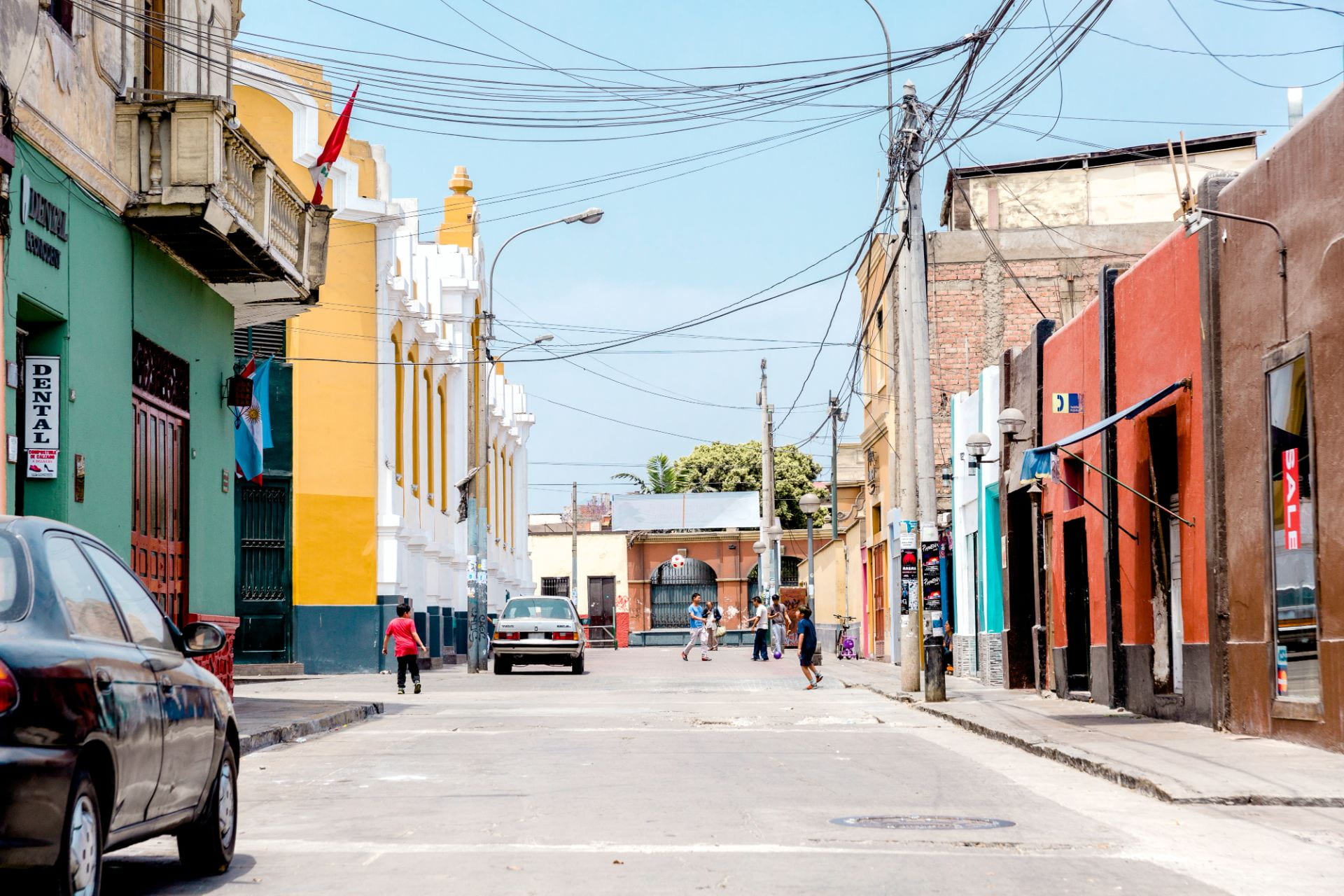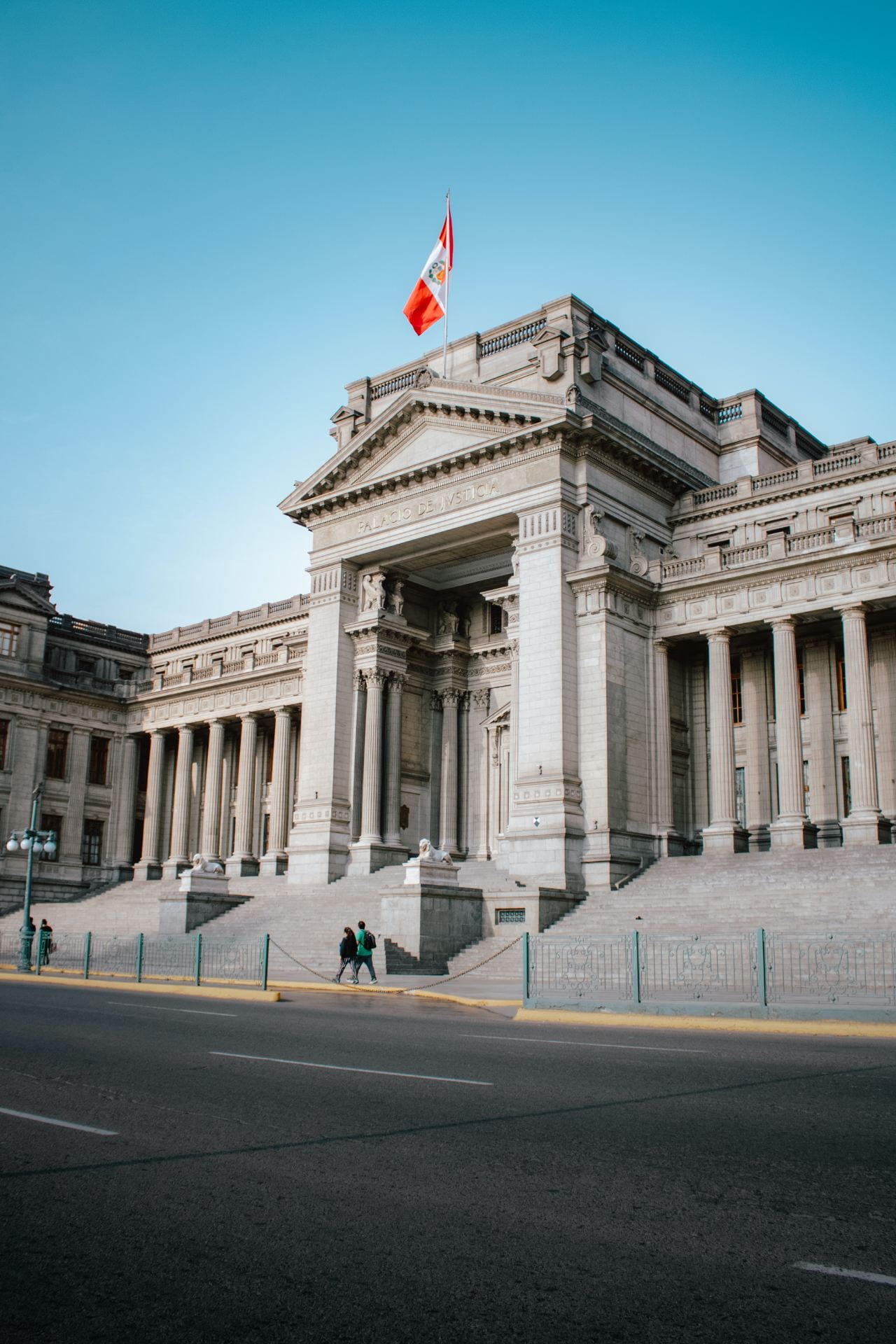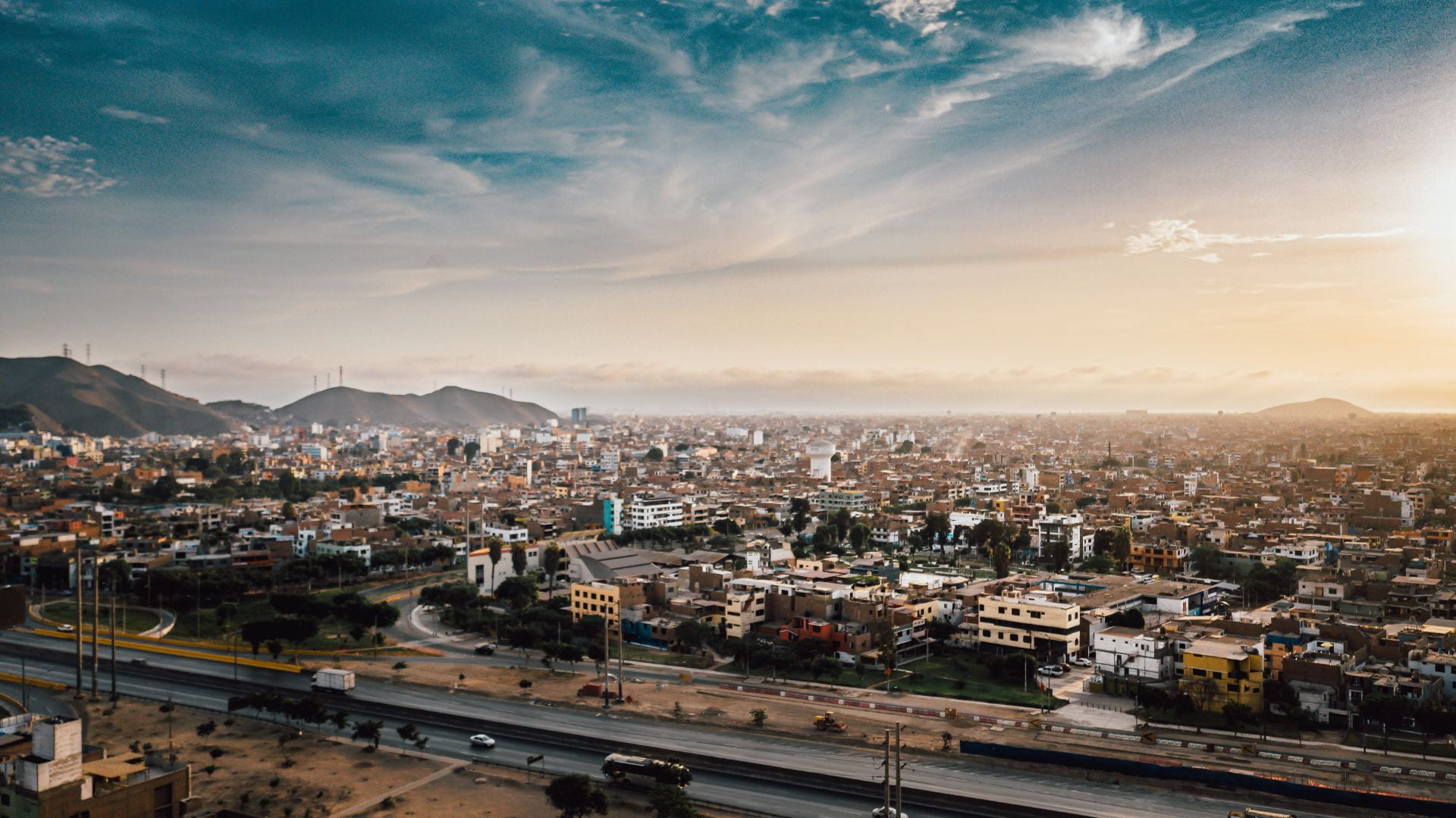
About the Author
Kevin A. Simauchi is a senior at Harvard College, where he studies Government and Economics with a focus on Latin American Studies. Currently, he writes for The Harvard Crimson. Kevin can be reached at kevin.simauchi@thecrimson.com. Follow him on Twitter @Simauchi.
Keiko Fujimori Finds a Refuge in Trumpism
Growing up, I was often shuttled between the United States and Peru, where most of my time was spent in the back of taxis, listening to the radio as we languished away in Lima’s traffic jams.
From the passenger seat, I could hear my dad chit-chat with the driver about the politics of the day. “Who was winning the mayoral race? Who are you going to vote for? Who was arrested this time?” Give us a sense of what years we are talking about.
At family gatherings, politics are what all my relatives could talk about. They agonized over the state of the country. President after president was jailed or impeached. Another minister or judge was involved in a bribery scandal.
They all lamented over the state of the country. How could such a place rich in culture, history, food, natural resources still not get its act together? And in every other place BUT Lima, life seemed to stagnate. Life didn’t get worse, but it didn’t get better either, the inequalities between urban and rural were so painfully visible, even right outside of Lima.
Down the Pan-American highway, on the right, you could see signs for new golf course developments and for sale signs advertising modern and newly built beach houses, and on the left, you stared out at shabby towns where resort employees and service workers lived.

Photo by Andres Urena on Unsplash
I grew up seeing those divides first-hand, and it pained me. So when I watched the election results come in this past June I knew that Pedro Castillo, Peru’s new president, would face what seems like an impossible challenge: uniting a bitterly divided country split on themes of race, income, and geography. Excellent!
He narrowly clinched the presidency by only 44,000 votes cast in an election in which just over 18 million people cast ballots and what observers called the strongest repudiation of the country’s establishment in 30 years.
Castillo is a socialist, union leader, and teacher who hails from the country’s poor northern Andean region. His identity and what it represents coming into the presidency stand in stark contrast to Lima’s predominantly white, conservative elite, and urban middle-class ranks.
In the weeks following the country’s vote, Castillo’s opponent, Keiko Fujimori, launched a defensive attack that sought to throw out 200,000 votes to flip the election in her favor.
The daughter of a now-disgraced autocrat—Alberto Fujimori—Keiko has unsuccessfully mounted three bids for the presidency in an effort to pardon her father from crimes committed during his time in office.

Photo by Cesar Gutierrez on Unsplash
Facing her third consecutive loss, she ultimately leaned on former U.S. President Donald J. Trump’s determination to change the outcome of the 2020 presidential elections. In assessing her path forward, she felt emboldened by his suspect claims of fraud.
Both Trump and Fujimori hung on to those claims with the seeming hope that they could assume the power of presidential immunity to shield themselves from damaging criminal probes.
Fujimori did not want to lose for the third time. But put more simply, had she been elected, she could have claimed protection from a series of corruption and money-laundering charges for which she faces more than 30 years in prison.
When in office, Trump could not face criminal charges as the Department of Justice ruled in 2000 that criminally charging a sitting President “would unconstitutionally undermine the capacity of the executive branch.” However, upon leaving office, Trump now faces a series of criminal probes from New York State Prosecutors for shady financial dealings.
Practical motives aside, the two political figures share eerie similarities in their campaign strategies and vision of government.
Fujimori’s election fraud claims were riddled with racist undertones as her campaign only sought to invalidate votes from regions with large Indigenous populations. In seeking to rewrite history, Trump pressured election officials and federal courts to throw out votes from majority Black counties and cities.
Fujimori’s chief legal advisors came out and accused Castillo of taking advantage of rural ballot boxes, manipulating vote totals to his advantage. Indigenous organizations from in and around Latin America condemned Fujimori’s tactics as a maneuver to silence the voices of rural and indigenous voters.
Civil rights activists and Black community leaders alike were alarmed to see the Trump campaign follow through with court battles to disenfranchise hundreds of thousands of Black and minority voters. Many organizations, like the NAACP Legal Defense Fund, charged that Trump brazenly violated the Voting Rights Act of 1965.
No claim of election fraud should ever be taken lightly. But what makes Fujimori’s claims hard to put into perspective is that the United States Secretary of State congratulated Peru for holding clean elections and lifted them as a “model of democracy in the region.”
The Organization of American States (OAS) similarly found no evidence of serious voting irregularities.
To Trump’s discontent, elections officials from all 50 states confidently declared that there were few, if any, irregularities in the 2020 election.
Fujimori and Trump also shared a vision that vilified the political left.
Keiko’s efforts represented desperation from the country’s establishment to preserve the status quo. After all, Castillo ran on behalf of a party that was a “Marxist follower of Nicolás Maduro.” and called for a radical reorientation of the country’s market system.
Trump recognized that to win a second term, he needed to win over Latino voters by framing the election as “a binary decision between freedom and socialism.” However, his opponent was a 50-year political veteran who defined his career on centrism, compromise, and pragmatism.
Yet, he and his Republican allies sought to raise the specter of communism by labeling his opponent and the Democratic party as “Trojan horses for socialism.”
Trump and his aides bet that their messaging could potentially resonate with the lived experiences of many Latino voters who migrated from countries with failed left-wing governments.
Fujimori did the same in her campaign against Castillo. She firmly anchored the election as a binary choice between communism and freedom and labeled Castillo as a follower of Venezuela’s Hugo Chávez and Nicolas Maduro. If Peru elected him, she warned Peruvians that their country could become another failed state like Venezuela.
But unlike Trump, Fujimori was the daughter of a now-disgraced autocrat, Alberto Fujimori, who ruled from 1990-2000. And to her advantage, enough people in Peru remain fond of the elder Fujimori. This gave her the license to evoke nostalgia on the campaign trail.
For ten years, Her father ushered in an economic boom and secured the country after a decade of failed state-led economic policies that caused massive hyperinflation and contributed to the rise of left-wing guerilla groups.
And even 20 years after he resigned in disgrace, some in Peru still see the elder Fujimori as a law-and-0rder president who freed the country from the grasp of the Shining Path.
Trump’s actions and determination to turn the election around encouraged Fujimori to undermine Peru’s democracy unapologetically. And because of her efforts to overturn votes, Peruvians have now expressed little confidence in their politicians’ ability to govern.
Consequentially, Castillo now has one of the weakest mandates of any president in Peruvian history. His approval ratings are underwater and a plurality of Peruvians think that actors on the far left influence his government.
33% of the country thinks he needs to govern from the center, and fears from Lima’s business elite have pushed him to moderate his economic agenda.
In early August, to calm markets rattled by a “Marxist-Leninist” president, Castillo asked the president of Peru’s Central Bank to stay on for an extra term. He appointed a finance minister who acknowledged Castillo’s economic priorities but desired to approach it from a center-left perspective.
Still, many in Peru fear what’s next to come under Castillo. Claims that he wants to pursue far-left policies continue to embattle Peru’s new government and may prevent Castillo from achieving lasting reforms.
So while the Republican argument that Democrats are “Trojan horses for socialism” may not have been as successful, Keiko Fujimori and her allies serve as a powerful reminder of that America’s Trumpian campaign tactics found a home in Peru and have made strides in weakening a political system already on its knees.
As a student of comparative government, I’ve learned how democracies can die. It takes very little for a weak political system like Peru’s to collapse. Pedro Castillo’s assignment now lies in getting establishment Peruvian leaders to recognize their shortcomings and work together to earn the public’s trust in the country’s still fledgling political institutions.
But that is all easier said than done.
Though Donald Trump is out of office, his efforts to subvert democratic norms and its creeping influence in Latin America are bringing one of our worst fears to life: the acceleration of democracy’s decline around the world.
More Student Views
Puerto Rico’s Act 60: More Than Economics, a Human Rights Issue
For my senior research analysis project, I chose to examine Puerto Rico’s Act 60 policy. To gain a personal perspective on its impact, I interviewed Nyia Chusan, a Puerto Rican graduate student at Virginia Commonwealth University, who shared her experiences of how gentrification has changed her island:
Beyond Presence: Building Kichwa Community at Harvard
I recently had the pleasure of reuniting with Américo Mendoza-Mori, current assistant professor at St Olaf’s College, at my current institution and alma mater, the University of Wisconsin-Madison. Professor Mendoza-Mori, who was invited to Madison by the university’s Latin American, Caribbean, and Iberian Studies Program, shared how Indigenous languages and knowledges can reshape the ways universities teach, research and engage with communities, both local and abroad.
Of Salamanders and Spirits
I probably could’ve chosen a better day to visit the CIIDIR-IPN for the first time. It was the last week of September and the city had come to a full stop. Citizens barricaded the streets with tarps and plastic chairs, and protest banners covered the walls of the Edificio de Gobierno del Estado de Oaxaca, all demanding fair wages for the state’s educators. It was my first (but certainly not my last) encounter with the fierce political activism that Oaxaca is known for.





